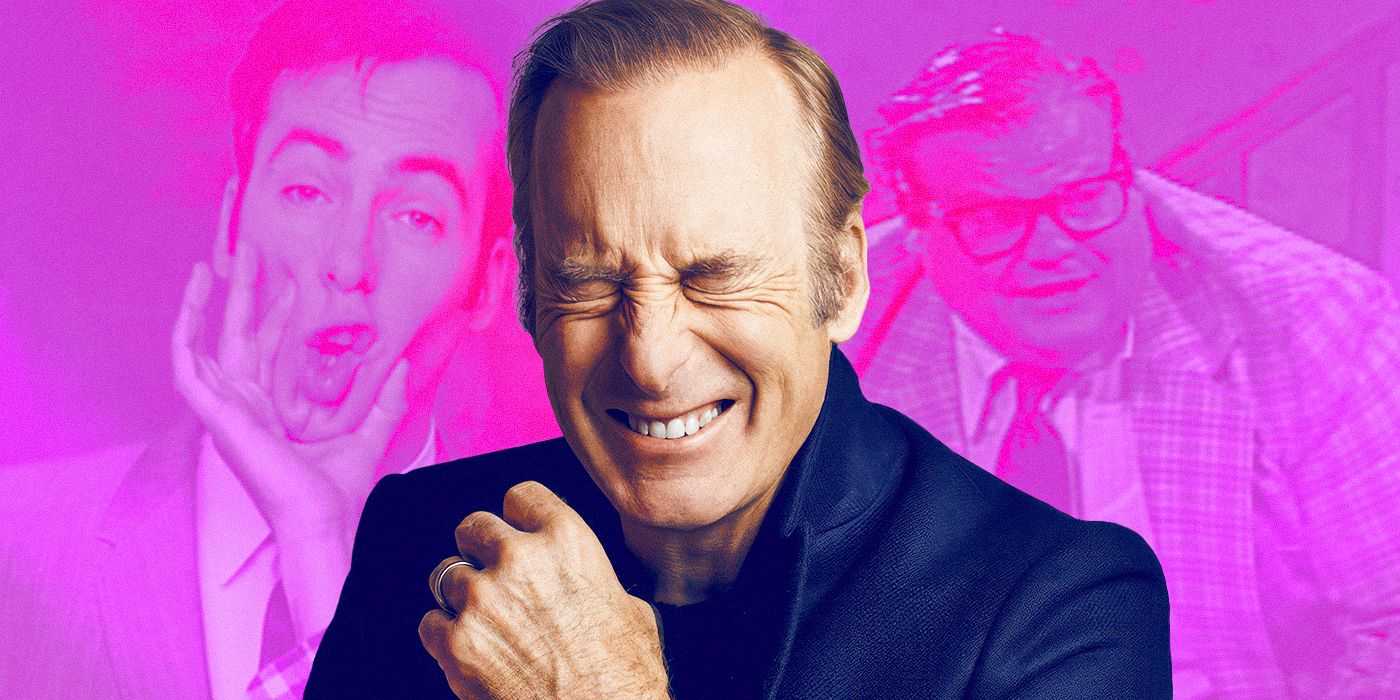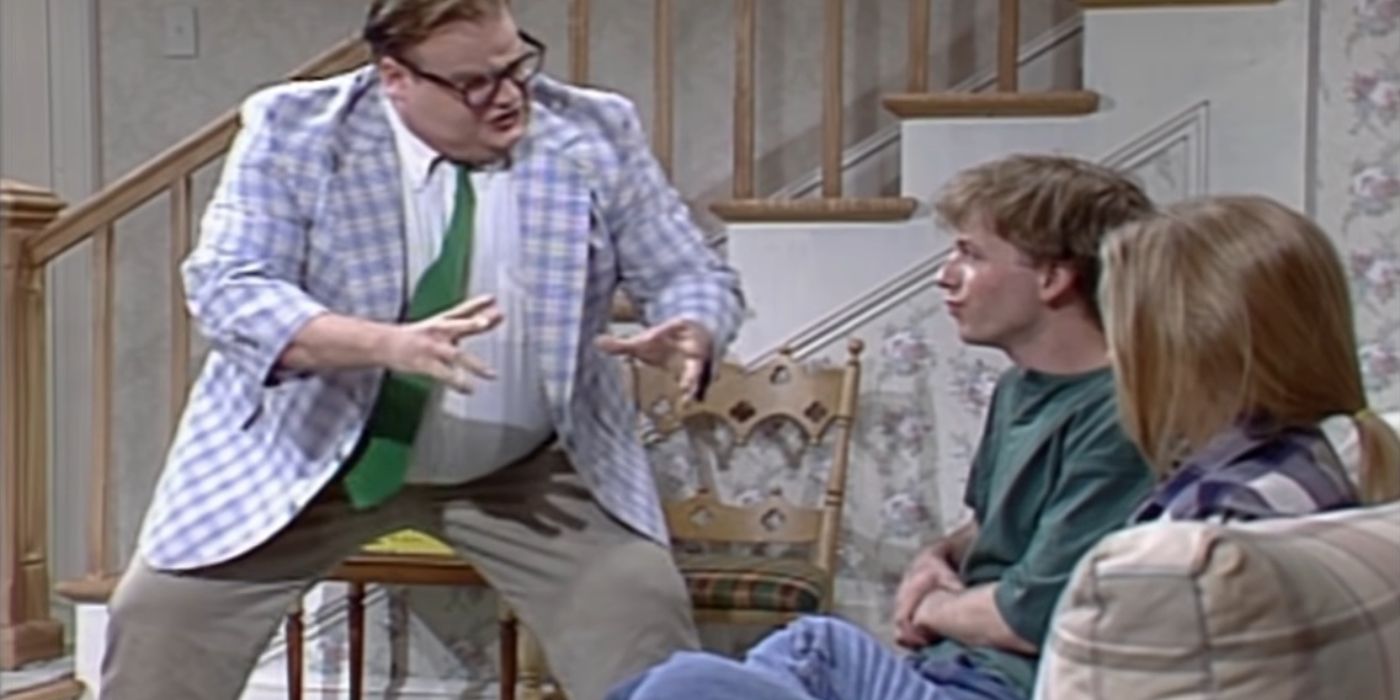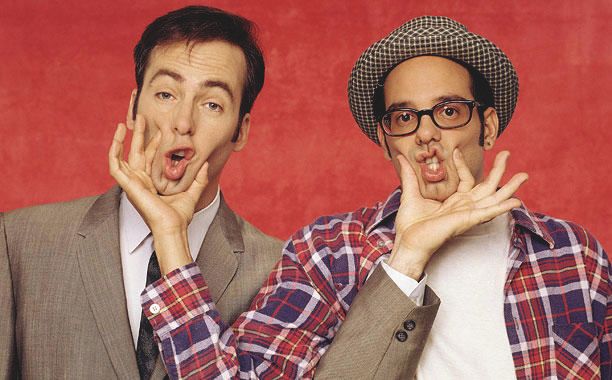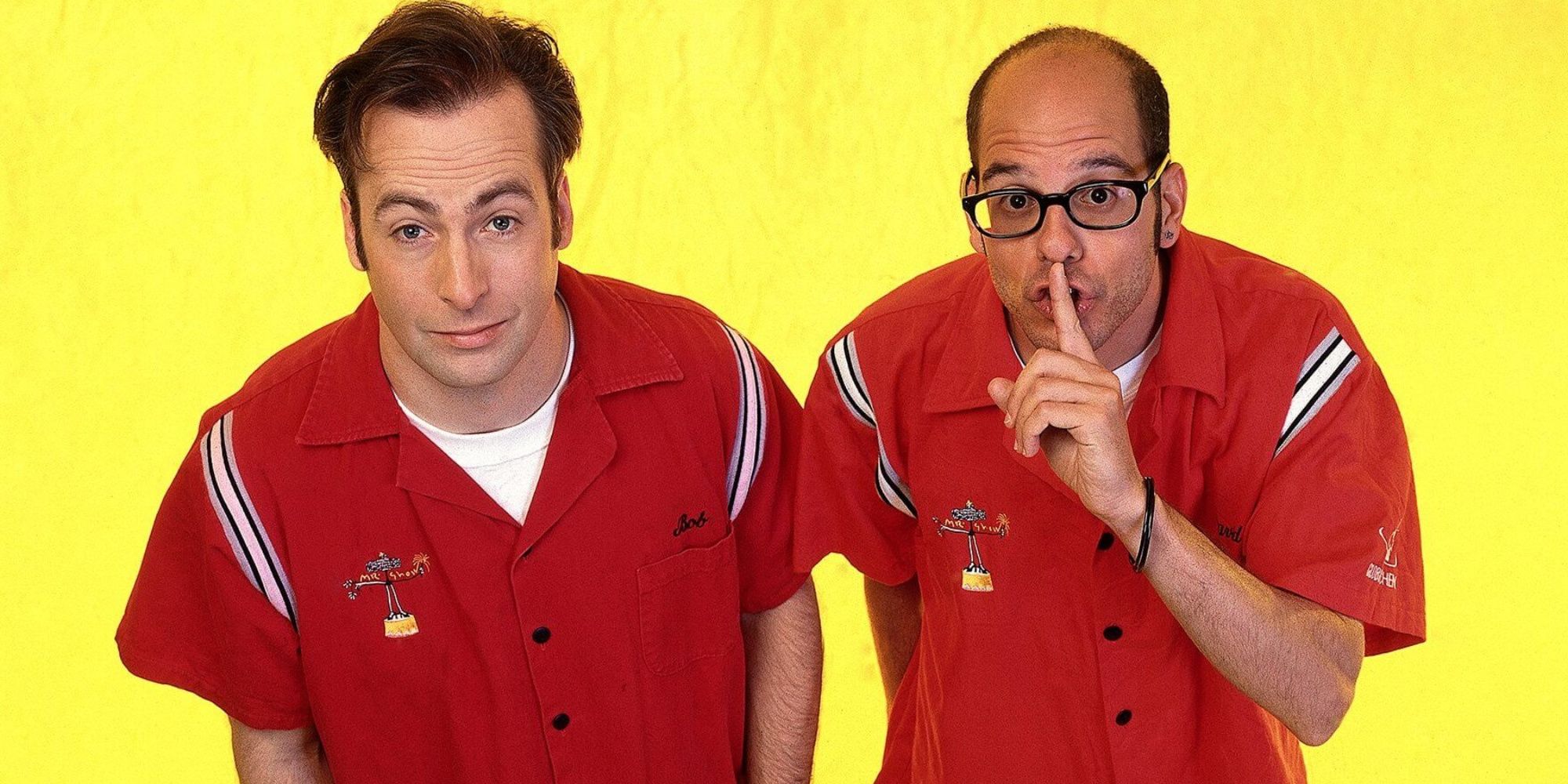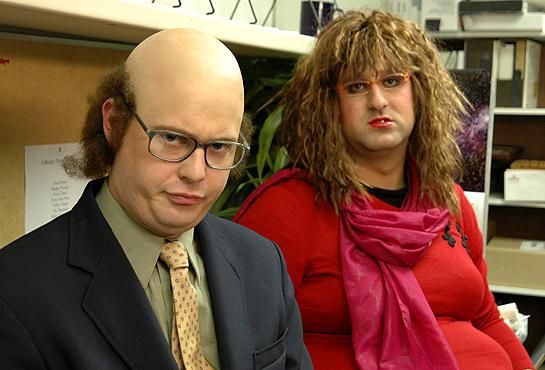During the second season of what has come to be regarded as one of television's greatest dramas, Breaking Bad, audiences were introduced to Bob Odenkirk as the shady, fast-talking lawyer Saul Goodman. Due to the character's success, series creators Vince Gilligan and Peter Gould spun off Goodman into his own series, Better Call Saul, which lasted six seasons to much critical acclaim, making it a worthy successor to the beloved series. Most viewers recognize Odenkirk through his recent dramatic roles. However, an entire generation knows him as a renowned comedic writer, sketch actor, and series creator. Revisiting some of his most memorable sketches show the seeds that grew into the revered career and, ultimately, a star on the walk of fame.
Saturday Night Live as an institution has given the public more than its fair share of catchphrases now part of the daily lexicon. Despite the longevity of the show you'd be hard-pressed to meet anyone who hasn't heard the line, "In a van down by the river," well, you can thank Mr. Odenkirk for that. As a writer on SNL from 1987 to 1995, he's written for some of the biggest names in comedy and has a few Emmy Awards to show for it. But no one could compare to the larger-than-life talent that was Chris Farley. Meeting while performing in Chicago's famed Second City Theater, Odenkirk would shape what would become the "Motivational Speaker" character that would propel Farley to legendary status.
Wanting to pursue more acting opportunities, his relationship with Ben Stiller, whom he met during Stiller's brief time on SNL, would lead to him being cast as a performer on The Ben Stiller Show. Though the show would be canceled after only one season, despite winning an Emmy Award for its writing, it would feature the talents of Janeane Garofalo, Andy Dick, and producer Judd Apatow.
Though short-lived, it allowed Odenkirk to showcase his acting ability while still writing behind the scenes. It was his fearlessness in taking on roles that were more often than not unflattering or unsavory that gave him such a diverse rogue's gallery of type. Creating memorable characters such as Vaughn, on the spoof "Melrose Heights 9021024026", Billybob Hoyt, a CEO looking to profit off the hillbilly lifestyle, and "Noah," a contestant on the dating game homage "Amish Studs," who devilishly yells, "It is forbidden fruit, and I am a fruit fly." But his portrayal of Charles Manson in the Lassie parody, "Manson," would become his signature character. That combination of absurdity with nostalgia becomes a recurring theme when he meets comedian David Cross, and they create Mr. Show.
'Mr. Show': A Dream Show With an All-Star Comedic Ensemble
In 1995, Bob Odenkirk, with co-creator David Cross, would build a political, socially aware, avant-garde, and extremely silly program, calling it Mr. Show. With HBO in its infancy, the creators wouldn't be restricted by language or subject, plus there were no commercial breaks to slow things down. Not only would it make stars of the duo, but it also introduced rising talents like Jack Black, Sarah Silverman, Brian Posehn, Paul F. Tompkins, Tom Kenny, Scott Aukerman, and Mary Lynn Rajskub. The show would become a cult hit, a time capsule for Gen-X ideology, influencing generations of comedic artists, most notably Key and Peele and Tenacious D. Wanting to capture the energy of one of Bob's favorite shows, Monty Python's Flying Circus, the sketch show would be a half-hour cleverly transitioning from one scene to the next, keeping the momentum and laughs at a constant pace.
One of Odenkirk's most remarkable talents as a comedic actor is playing his characters as genuine, letting the humor come from the situation no matter how surreal. In "The Joke," a musical sketch from Season 1, he plays a sentient milk machine with a faith crisis. Dressed like a combination between a mime and a grade school play version of the Tin Man, he sings a high-pitched melancholy song about loneliness that is as funny as it is entirely absurd. With every other performer going for broke, his decision to play opposite of expectations make him stand out. An instinct that carries over to his dramatic work.
Odenkirk's affinity for old-timey is front in center in Season 3 with "The Great Philouza," a parody of Amadeus but substituting symphonies with marching band music. Odenkirk plays the titular role of a marching leader who does not use a band but only performs through mouth sounds and humming, while Cross, his Salieri, goes mad trying to outperform him. "Masters of Megaphone," set in the 1920s, has Odenkirk as Dickie Crickets, a megaphone crooner whose popularity is waning when rising star Kid Jersey, played by Cross, becomes an unwitting rival. Locked an escalating feud that culminates with the competitors accidentally creating the sports bra and electric tie rack. The characterizations are so sincere in their vulnerability of being upstaged despite the absurdity of the premise.
A fan favorite, "Van Hammersly," pokes fun at those late-night infomercials as Odenkirk plays a billiards trick artist who rambles on about the golden age of Hollywood, famous horse races, and world history while performing a series of chaotic pool tricks. Adding a ta-da button after each segment shows a level of pride and general unawareness of the ridiculousness, an endearing quality often found in Odenkirk's writing.
Conversely, "Spite Marriage" takes the notion of a bar fight to a new level when would-be brawlers, Tom and Larry, turn toxic masculinity into a loving, lifelong relationship, as neither is willing to back down. Despite being a coupling out of anger, it is a sweet sketch that is as relevant today as it was when it aired. In "The Story of Everest," Bob plays the father of the man trying and failing to tell the story about his conquering of Mt. Everest due to his continuos falling into a thimble rack behind him. The father becomes increasingly enraged as the sketch goes on, mostly because dozens of thimbles had to be reset after each take, and it happens half a dozen times. It's an all-timer, especially knowing it was filmed in front of a live studio audience. No one goes from docile to furious quicker than a Bob Odenkirk creation.
Ushering in a New Era of Sketch Comedy
With Mr. Show getting the plug pulled after four seasons, Bob Odenkirk had the unique position of being a legend in the field of comedy and being obscure to general audiences. Taking smaller but memorable roles in classics like The Larry Sanders Show, Curb Your Enthusiasm, and Arrested Development kept him working, but it would be years later before he got the offer that would change his life.
With his unique comic sensibilities, he has an eye for spotting offbeat talent. Discovering alt-comedy duo Tim Heideker and Eric Wareheim he would go on to produce their long-running cult series, Tim and Eric Awesome Show, Great Job!, appearing periodically on the show. Reuniting with Ben Stiller, the two executive produced the sketch comedy troupe The Birthday Boys series on IFC. Mr. Show Alumni Scott Aukerman would go on to create Comedy Bang, Bang, bringing along fellow cast as well. The show was not only a hit for IFC but remains a highly successful podcast. Odenkirk is a frequent guest there as well.
Despite the massive success of Better Call Saul and the lead in the action film Nobody, from John Wick creator Derek Kolstad, Odenkirk remains one of the most influential voices in modern comedy. A chameleon performer who can inhabit any role, breaking your heart or have you doubled over with laughter with just a look. Persistence, and his enate talent for anything he sets his mind on has led him to iconic guest spots, writing best-selling books, mentoring aspiring comedic talent and an upcoming series from AMC titled Lucky Hank which is sure to connect with audiences. Recently appearing on the Netflix hit Tim Robinson's I Think You Should Leave, he steals the scene giving a performance both painfully awkward and outlandish while bringing tears of laughter to your eyes.
It shows that even with the success and accolades for his dramatic work, Bob Odenkirk is still a king of comedy.

